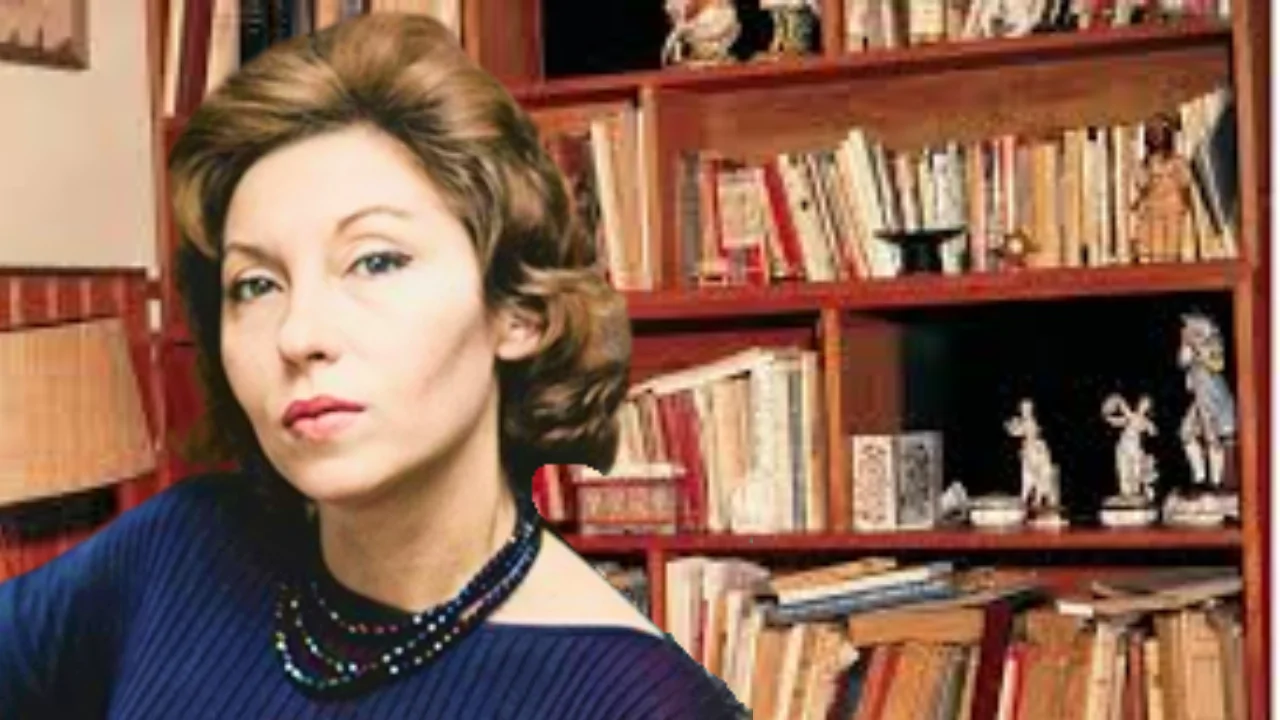Clarice Lispector: A Storyteller Beyond The Borders
13 Mar 2025

Clarice Lispector is often hailed as one of the most enigmatic and profound literary voices of the 20th century. A Brazilian novelist, short story writer, and journalist, Lispector's work defied categorization, transcending traditional storytelling conventions with her introspective and often philosophical narratives.
Lispector’s literature was deeply psychological, exploring themes of identity, existentialism, and human consciousness. Yet, despite her prominence in Brazilian literature, Lispector remains a fascinating, almost mythical figure—one whose life story is just as compelling as her fiction.
"Everything in the world began with a yes," Lispector once wrote, reflecting her belief in the power of creativity and courage to embrace life's challenges.
Formative Years: The Journey From Ukraine to Brazil
Clarice Lispector was born on December 10, 1920, in Chechelnyk, a small town in present-day Ukraine. Her birth name was Chaya Pinkhasovna Lispector, and she was born to Jewish parents fleeing the violent pogroms and political instability that ravaged Eastern Europe at the time. Her family's escape to Brazil was a desperate attempt to seek refuge and build a new life away from persecution.

Upon arriving in Brazil in 1922, the Lispector family settled in the northeastern state of Pernambuco. Tragically, her mother, weakened by the trauma she endured in Ukraine, passed away when Clarice was just nine years old.
This profound loss left an indelible mark on Lispector, shaping much of the introspective depth found in her later works.
Raised in Recife, Lispector grew up in a household that valued education and intellectual curiosity. Despite economic hardships, she showed an early affinity for language and storytelling, which would later become the foundation of her literary career.
Lesson: Resilience -Clarice’s early life was marked by displacement and loss, yet these hardships shaped her worldview and inspired her literary exploration of identity and existence.
Developing Storytelling Creativity through Education
Lispector's passion for literature blossomed during her formative years in Recife. She was an avid reader, captivated by the works of renowned Brazilian writers such as Machado de Assis and Graciliano Ramos.
In 1935, after her family moved to Rio de Janeiro, she pursued a law degree at the University of Brazil (now the Federal University of Rio de Janeiro).
While studying law, Lispector worked as a journalist and writer, using her sharp intellect to explore themes of justice, philosophy, and human consciousness.
Though she never practiced law, her legal studies honed her analytical thinking, which later enriched her literary voice.
It was during this time that she began crafting short stories, many of which would later be published in prestigious literary journals.
These early works displayed her unique ability to blend existential themes with everyday experiences, a hallmark of her future novels.
Lispector once noted, “I write as if to save somebody’s life—probably my own,” underscoring the deeply personal nature of her craft.

Building a Trailblazing Literary Career
Clarice Lispector's literary breakthrough came in 1943 when she published her debut novel, Near to the Wild Heart (Perto do Coração Selvagem), at the age of 23.
The novel, which employed an innovative stream-of-consciousness narrative style, was unlike anything seen in Brazilian literature at the time.
It was praised for its bold experimentalism and philosophical depth, earning Lispector the prestigious Graça Aranha Prize for debut fiction.
Following her marriage to Maury Gurgel Valente, a diplomat, Lispector traveled extensively, living in Europe and the United States. These experiences broadened her worldview but also left her feeling disconnected from her Brazilian roots.
Despite this, she continued to write prolifically, producing works such as The Chandelier (O Lustre) and The Besieged City (A Cidade Sitiada).
Her later novels, including The Passion According to G.H. (A Paixão Segundo G.H.) and The Hour of the Star (A Hora da Estrela), further cemented her reputation as a literary innovator. Her writing defied conventions, weaving complex narratives that explored identity, existential dread, and the intricacies of the human psyche.
Lesson: Fearlessness - Lispector’s boldness in storytelling teaches us the importance of embracing creativity without fear of judgment or misunderstanding.
Creating Impact through Advocacy
Beyond her literary accomplishments, Lispector was an advocate for social change. Throughout her career, she used her journalistic platform to shed light on issues of gender, class, and cultural identity in Brazil. As one of the few prominent female writers of her time, she often challenged societal expectations of women, both through her works and in her personal life.
In her stories, she frequently depicted female characters navigating oppressive societal norms, making her a quiet yet powerful voice in feminist discourse. While she never explicitly labeled herself a feminist, her works resonated with women seeking autonomy and self-expression.
Lispector also worked as a journalist, contributing to newspapers and magazines where she wrote about literature, culture, and human rights. Her sharp wit and insightful commentary made her an influential figure in Brazilian intellectual circles.

Lesson: Perseverance -Lispector’s determination to write and create, even in the face of illness, serves as an enduring lesson in resilience and dedication to one’s passions.
Life Beyond Literature: Personal Life & Struggles
Lispector's personal life was marked by moments of profound joy and deep sorrow. Her marriage to Maury Gurgel Valente ended in divorce in 1959, leaving her to raise her two sons, Pedro and Paulo, as a single mother. Her eldest son, Pedro, was diagnosed with schizophrenia, a struggle that weighed heavily on her.
In 1966, a tragic accident left Lispector with severe burns on her right hand after she fell asleep with a lit cigarette. The injuries were so severe that she required multiple surgeries, and the pain affected her for the rest of her life.
Despite this hardship, she continued to write, producing some of her most celebrated works in the final decade of her life.
Clarice Lispector, lived a largely reclusive life in her later years, shying away from public attention. Yet, despite her introverted nature, she maintained a loyal readership who revered her for her literary brilliance and raw emotional depth.
A Legacy That Transcends Borders
Clarice Lispector passed away on December 9, 1977, just one day before her 57th birthday, after a battle with ovarian cancer. Although her life was cut short, her literary legacy endures.
Her works have been translated into numerous languages, gaining international acclaim and securing her place as one of Brazil’s most significant writers. Scholars and readers alike continue to analyze her complex narratives, and contemporary authors cite her as an influence on their own storytelling.

Source: wikipedia[/caption]
Lispector’s ability to blend psychological depth with poetic prose has made her a timeless literary figure. She was more than just a writer—she was a storyteller who captured the intricacies of human existence, leaving behind a body of work that transcends time and place.
Conclusion
Clarice Lispector was a literary force whose impact continues to resonate worldwide. From her early struggles as a refugee to her rise as one of Brazil’s most celebrated writers, her journey is a testament to resilience, creativity, and intellectual courage. Her stories, rich with introspection and emotion, invite readers to explore the depths of human consciousness.
Through her words, Lispector remains a storyteller beyond borders—a voice that continues to echo in the hearts and minds of readers across generations. Her legacy serves as a reminder of the power of literature to connect, challenge, and inspire.




